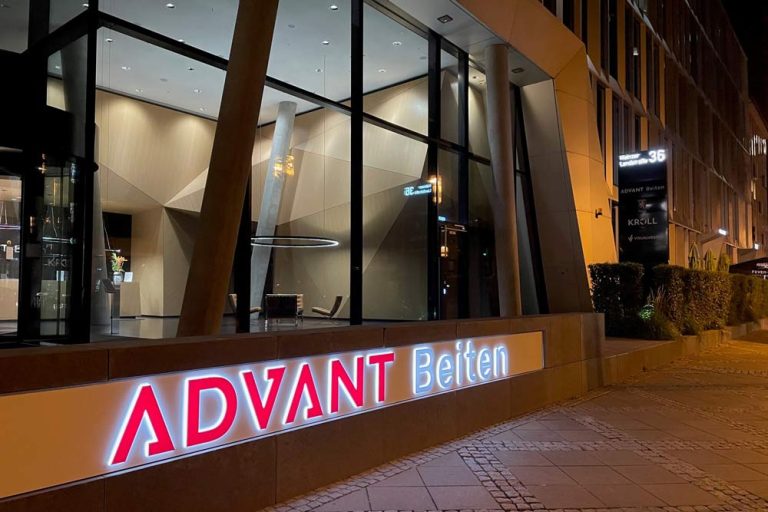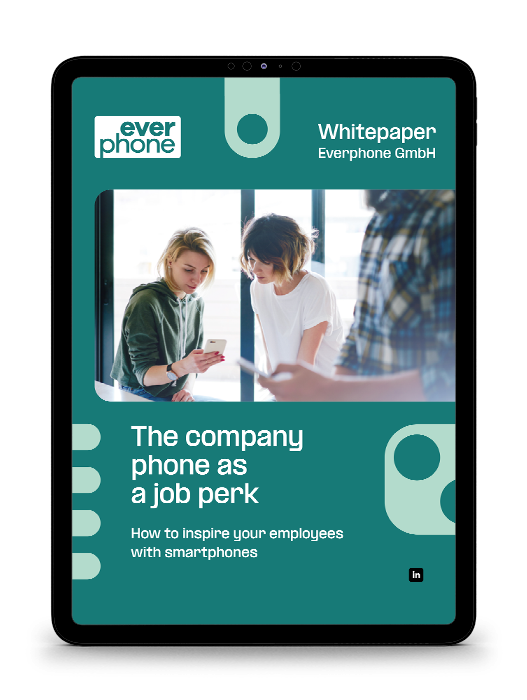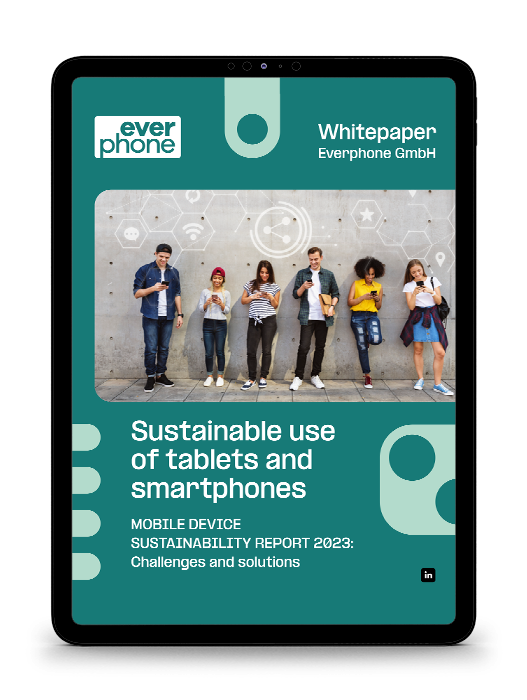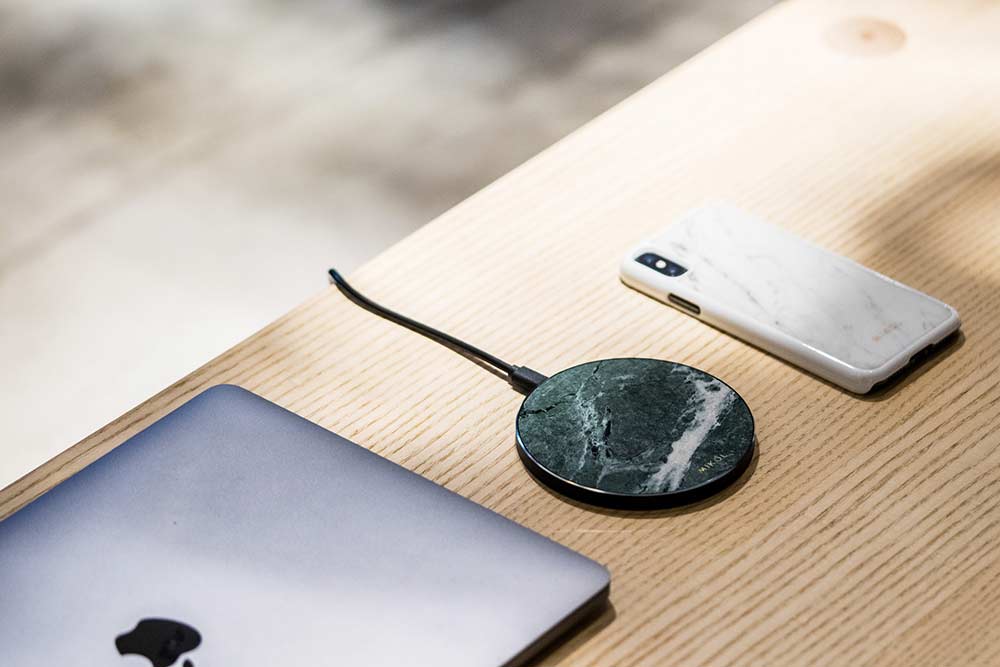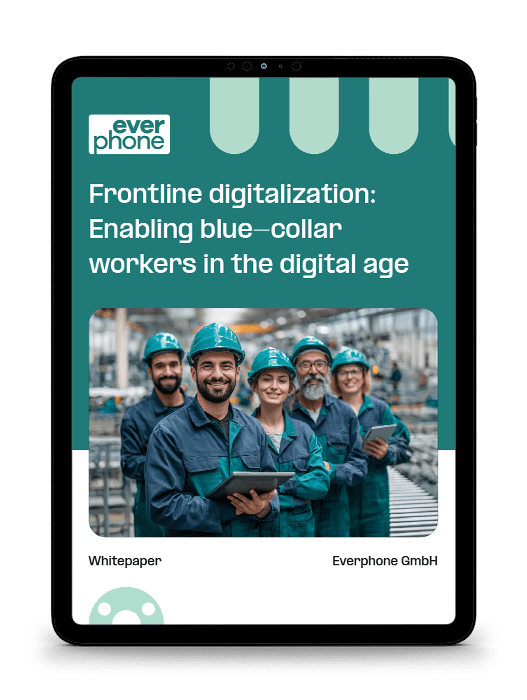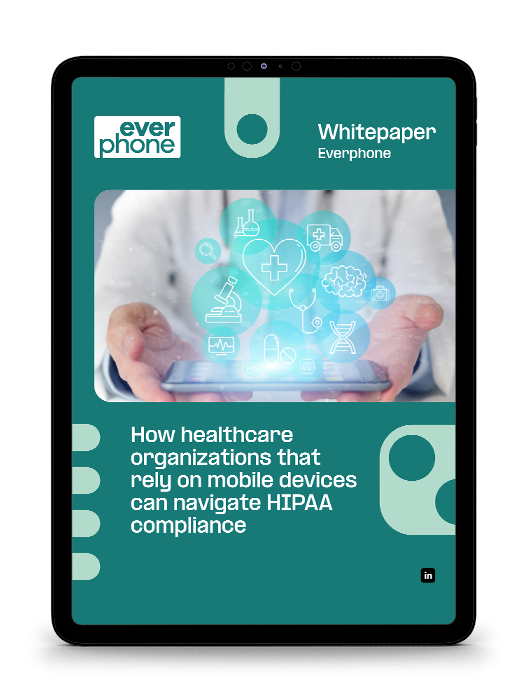Renting a smartphone–when is it worthwhile?
Renting a smartphone can be sensible for various reasons. The classic scenario: With smartphone rental, you spread the costs over an extended period and maintain flexibility in choosing devices. This is especially useful if you only need the smartphone for a limited time or if you prefer regularly switching to the latest gadget.
The primary benefit of smartphone rental is cost savings, as not everyone can readily invest a thousand dollars or more in a high-quality smartphone.
Additionally, rental smartphones from providers like Grover often include insurance and an exchange service. If the rented smartphone is damaged, the insurance covers it, and you receive a replacement promptly.
Advantages of smartphone rentals for organizations
The same principles apply to companies. Overall, smartphone rental can be a promising procurement option for businesses, associations, and other organizations.

Renting is tailored to demand
By renting company phones (as opposed to a T-mobile bundle or smartphone leasing), you shift to a fully demand-oriented setup. You only have devices in circulation that are currently being used by your employees.
When employees leave your company, you can easily return the rented company phones—this is the case with Device-as-a-Service from Everphone, for example.
Decommissioned company phones, which end up languishing in tech cabinets or are challenging to return due to bundled leasing agreements, become a thing of the past.
Managed services: Renting is convenient
This not only benefits data protection and data security but also significantly saves IT capacities—a valuable asset in any company.
Why? When procuring rented smartphones, the device-as-a-service provider (such as Everphone) handles all logistics, staging, and app configuration. Your IT only needs to deal with the initial specifications for the rented smartphones, and the rest happens without additional IT efforts on your part.
Mobile security: Smartphone rentals are secure
These company-wide uniform specifications are essential for the security of rented mobile devices. Rented company smartphones are generally integrated into Mobile Device Management (MDM), making it easy to comply with IT regulations—private use of the devices is also easily possible!
Read more: https://www.backend.everphone.com/en/blog/android-security/
Drawbacks of renting a smartphone
Many believe there are significant drawbacks to borrowing a smartphone, starting with the Total Cost of Ownership (TCO). If you add up the monthly amounts for a rental phone, the sum may be higher than the purchase price.
However, TCO includes internal costs for handling, device management, incident management, and invoicing. When considering these, TCO is comparable while simultaneously relieving IT, procurement, accounting, and often office management.
Additionally, many fear further payments if the rented device shows signs of wear upon return. This is indeed the case with smartphone leasing, where there may be additional payments. However, with Device-as-a-Service (see below), these payments do not apply.
Company smartphones: Rent, don’t buy!
Device-as-a-service (DaaS) is a service model where companies rent mobile devices like smartphones, tablets, laptops, and other end devices instead of buying them.
The DaaS provider, such as Everphone, supplies, installs, configures, and manages the devices during the rental period. Companies pay a monthly fee per device for the DaaS service.
DaaS offers companies the aforementioned comprehensive advantages over device purchases. Additionally, DaaS relieves the IT department of device management, allowing them to focus on strategically significant tasks.
DaaS is suitable for companies of all sizes, especially those managing a large number of devices or needing flexibility in responding to changing IT requirements.
Borrow your smartphone: Device-as-a-service
Another aspect worth mentioning is the ecological benefit of using a smartphone rental for the organization. With Device-as-a-Service rental devices from Everphone, for example, recycling of returned devices is factored in from the start.
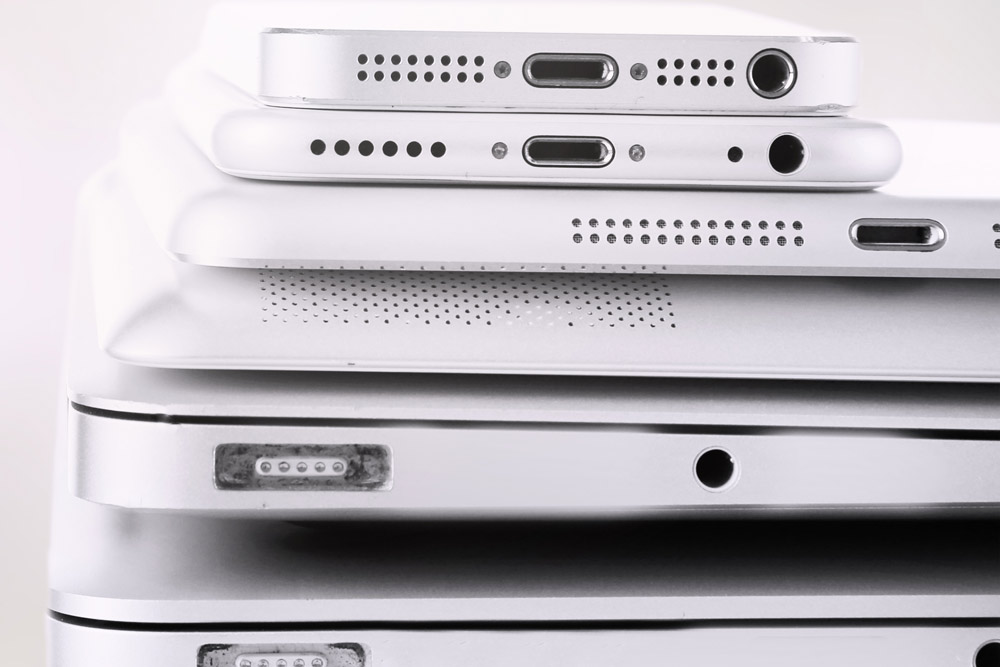
Moreover, private use of the devices is allowed, eliminating the need for users to have a separate personal device (which is not only ecologically sensible but also a nice benefit for employer branding).
And how about you?
Are you still buying or already renting?
